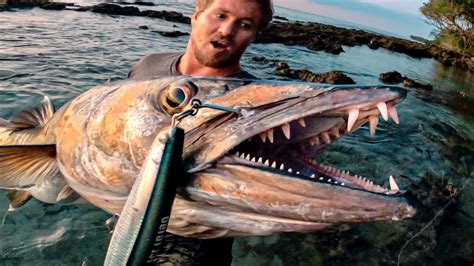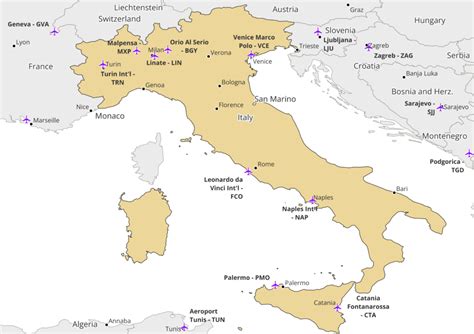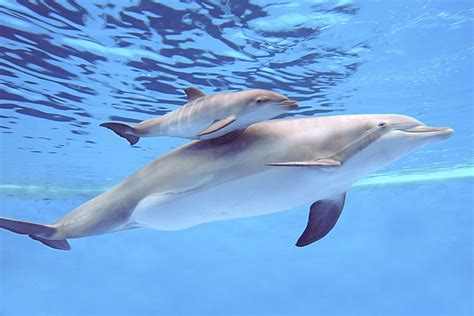
Local anglers in Oklahoma City have a renewed opportunity to reel in hefty rewards while contributing to the health of local waterways, as the Monster Fish Bounty program makes its return, offering cash incentives for catching and reporting massive invasive fish species.
Oklahoma City’s initiative encourages residents to fish for and remove invasive species, primarily common carp and grass carp, from the city’s lakes and rivers. The program, aimed at controlling the population of these non-native species and improving the aquatic ecosystem, offers a bounty for each qualifying fish caught and properly reported. This dual approach benefits both the environment and the wallets of participating anglers.
The Monster Fish Bounty program specifically targets common carp and grass carp due to their significant impact on local aquatic environments. Common carp, introduced to North America in the 19th century, are known for their ability to disrupt aquatic ecosystems by muddying waters and uprooting vegetation, which degrades habitat for native species. Similarly, grass carp, though sometimes used for aquatic weed control, can become problematic if their population is not managed, as they can overgraze native plants, reducing biodiversity and impacting water quality.
“We’re excited to bring back the Monster Fish Bounty program,” said a spokesperson for the Oklahoma City Department of Parks and Recreation. “This is a great opportunity for our community to get involved in conservation efforts while enjoying our beautiful waterways. By removing these invasive species, we can help protect the health of our lakes and rivers for future generations.”
The program operates on a simple premise: anglers catch a qualifying common carp or grass carp, report the catch according to the program’s guidelines, and receive a predetermined bounty for each fish. The specific amount of the bounty and the rules for participation are detailed on the city’s official website and available at local fishing supply stores. This incentivized approach aims to increase participation and ensure the effective removal of these harmful species from Oklahoma City’s aquatic ecosystems.
The reintroduction of the Monster Fish Bounty program reflects Oklahoma City’s ongoing commitment to environmental stewardship and the health of its natural resources. By engaging the community in active conservation efforts, the city hopes to achieve a sustainable balance within its aquatic ecosystems, ensuring the long-term health and enjoyment of these valuable resources. The program is expected to not only control invasive species populations but also raise awareness among residents about the importance of protecting local waterways.
Program Details and Regulations
The Monster Fish Bounty program has specific guidelines to ensure its effectiveness and fairness. Anglers must register for the program and adhere to all state fishing regulations. Each fish submitted for the bounty must meet certain weight or length requirements to qualify, ensuring that the program targets larger, more impactful individuals within the invasive species population.
Participants are required to submit photographic evidence of their catch, including clear images of the fish alongside a measuring device or scale, to verify its size and species. The reporting process typically involves submitting this information through an online portal or directly to the Department of Parks and Recreation. Detailed records of each catch are maintained to track the program’s progress and assess its impact on the target species.
Furthermore, the program emphasizes responsible fishing practices. Anglers are encouraged to use ethical and sustainable methods, minimizing any potential harm to non-target species. Any fish caught that do not qualify for the bounty must be released back into the water unharmed. The program also promotes catch-and-release practices for native fish species, ensuring their populations remain healthy and balanced.
Ecological Impact and Benefits
The primary goal of the Monster Fish Bounty program is to mitigate the negative ecological impacts of common carp and grass carp on Oklahoma City’s aquatic ecosystems. These invasive species can significantly alter habitats, reduce biodiversity, and degrade water quality, affecting both aquatic life and recreational opportunities.
Common carp, for example, are bottom feeders that stir up sediment as they forage for food. This activity increases turbidity, reducing the amount of sunlight that penetrates the water column. As a result, aquatic plants struggle to grow, leading to a decline in habitat for native fish and other aquatic organisms. The increased sediment also carries nutrients, which can fuel algal blooms, further degrading water quality and potentially harming aquatic life.
Grass carp, on the other hand, are voracious herbivores that consume large quantities of aquatic vegetation. While they can be effective in controlling nuisance weeds, their indiscriminate feeding habits can also decimate native plant populations. This loss of vegetation reduces habitat for native fish and invertebrates, disrupts food webs, and can lead to increased erosion and sedimentation.
By removing these invasive species, the Monster Fish Bounty program aims to restore the ecological balance of Oklahoma City’s lakes and rivers. Reduced populations of common carp and grass carp can lead to improved water clarity, increased native plant growth, enhanced habitat for native fish and wildlife, and a healthier overall aquatic ecosystem. These improvements not only benefit the environment but also enhance recreational opportunities such as fishing, boating, and swimming.
Community Engagement and Education
In addition to its ecological goals, the Monster Fish Bounty program serves as a valuable tool for community engagement and education. By involving local anglers in conservation efforts, the program raises awareness about the importance of protecting aquatic ecosystems and the threats posed by invasive species.
The program provides opportunities for residents to learn about the identification, biology, and impacts of common carp and grass carp. Educational materials are often available at registration points, fishing supply stores, and online, providing anglers with the information they need to participate effectively and responsibly.
Furthermore, the program fosters a sense of stewardship among participants. By actively contributing to the removal of invasive species, anglers develop a greater appreciation for the value of healthy aquatic ecosystems and a stronger commitment to their protection. This increased awareness can lead to more responsible behavior on and around waterways, such as proper disposal of fishing line and other trash, and support for other conservation initiatives.
The Monster Fish Bounty program also provides a platform for community interaction. Anglers can share their experiences, tips, and successes with one another, creating a network of individuals dedicated to improving the health of Oklahoma City’s waterways. This sense of community can further enhance the program’s effectiveness and its long-term sustainability.
Economic Benefits and Tourism
Beyond its environmental and community benefits, the Monster Fish Bounty program can also generate economic benefits for Oklahoma City. Increased fishing activity can boost sales at local fishing supply stores, bait shops, and other businesses that cater to anglers. The program can also attract anglers from outside the city, bringing in additional revenue and supporting local tourism.
Healthy aquatic ecosystems are also essential for tourism and recreation. Clean water, abundant fish populations, and scenic waterways attract visitors who spend money on lodging, food, entertainment, and other goods and services. By improving the health of its lakes and rivers, Oklahoma City can enhance its appeal as a destination for outdoor recreation and tourism, further stimulating the local economy.
The Monster Fish Bounty program can also create opportunities for local businesses to partner with the city on conservation efforts. Sponsorships, donations, and other forms of support can help fund the program and promote local businesses while demonstrating their commitment to environmental stewardship.
Challenges and Future Directions
While the Monster Fish Bounty program offers numerous benefits, it also faces certain challenges. One challenge is ensuring that the program is effectively targeting the intended species and that the bounty is set at an appropriate level to incentivize participation without being overly costly.
Another challenge is monitoring the program’s impact on the target species and the overall aquatic ecosystem. Regular surveys and assessments are needed to track changes in fish populations, water quality, and habitat conditions. This data can be used to adjust the program as needed to maximize its effectiveness.
Looking ahead, Oklahoma City could consider expanding the Monster Fish Bounty program to target other invasive species that pose a threat to local waterways. Asian carp, for example, are a growing concern in many parts of the United States, and a bounty program could help control their spread in Oklahoma City.
The city could also explore other innovative approaches to managing invasive species, such as biological control, habitat restoration, and public education campaigns. A comprehensive, integrated approach that combines multiple strategies is likely to be the most effective way to protect the health of Oklahoma City’s aquatic ecosystems.
Best Practices for Anglers Participating in the Program
To ensure the success of the Monster Fish Bounty program and to promote responsible fishing practices, anglers should follow these best practices:
- Register for the program: Before participating, anglers should register with the Oklahoma City Department of Parks and Recreation and familiarize themselves with the program’s rules and regulations.
- Obtain a valid fishing license: All anglers must possess a valid Oklahoma fishing license to participate in the program.
- Identify target species correctly: Anglers should learn how to identify common carp and grass carp accurately to avoid mistakenly harvesting native fish species.
- Use appropriate fishing gear: Use fishing gear that is suitable for targeting larger fish species, such as heavy-duty rods, reels, and lines.
- Practice ethical fishing techniques: Use humane and responsible fishing techniques to minimize stress and injury to fish.
- Handle fish carefully: When handling fish, use wet hands or gloves to protect their slime coating. Avoid dropping or squeezing fish, and remove hooks gently.
- Report catches accurately: Submit accurate and complete information about each catch, including the date, time, location, species, weight, and length. Provide clear photographic evidence as required.
- Dispose of fish properly: Dispose of harvested fish in accordance with local regulations. Do not release them back into the water.
- Clean and inspect gear: Clean and inspect fishing gear regularly to prevent the spread of invasive species. Remove any aquatic plants, animals, or mud before moving to a new location.
- Educate others: Share your knowledge and experiences with other anglers and encourage them to participate in the program and practice responsible fishing techniques.
- Respect the environment: Avoid littering, damaging vegetation, or disturbing wildlife. Leave fishing areas cleaner than you found them.
By following these best practices, anglers can help ensure the success of the Monster Fish Bounty program and contribute to the health and sustainability of Oklahoma City’s aquatic ecosystems.
Conclusion:
The Monster Fish Bounty program represents a proactive approach by Oklahoma City to address the challenges posed by invasive fish species and promote the health of its aquatic ecosystems. By incentivizing community involvement, the program not only helps control the populations of common carp and grass carp but also raises awareness about the importance of protecting local waterways.
The program’s success hinges on the active participation of local anglers, adherence to responsible fishing practices, and ongoing monitoring and evaluation. As Oklahoma City continues to refine and expand its conservation efforts, the Monster Fish Bounty program can serve as a model for other communities seeking to address similar environmental challenges. The long-term benefits of the program include improved water quality, enhanced habitat for native species, increased recreational opportunities, and a stronger sense of community stewardship. Through collaborative efforts and a commitment to environmental sustainability, Oklahoma City can ensure that its lakes and rivers remain healthy and vibrant for generations to come.
Frequently Asked Questions (FAQ)
1. What species of fish are targeted in the Monster Fish Bounty program, and why?
The program primarily targets common carp and grass carp. These species are targeted because they are invasive and have a significant negative impact on the local aquatic ecosystem. Common carp disrupt the ecosystem by muddying waters and uprooting vegetation, while grass carp can overgraze native plants, reducing biodiversity.
2. How do I register for the Monster Fish Bounty program, and what information do I need to provide?
To register, visit the Oklahoma City Department of Parks and Recreation website or visit local fishing supply stores for details. You will likely need to provide your name, contact information, fishing license number, and agree to abide by the program’s rules and regulations.
3. What are the requirements for a fish to qualify for the bounty, such as size or weight, and how do I report a catch?
The specific size or weight requirements vary, so check the program guidelines. Typically, you will need to submit photographic evidence of the catch, including clear images of the fish with a measuring device or scale. Reporting is usually done through an online portal or by contacting the Department of Parks and Recreation directly.
4. Where are the designated fishing locations for the Monster Fish Bounty program, and are there any restrictions on where I can fish?
The program generally applies to most public lakes and rivers within Oklahoma City limits, but it’s crucial to verify this with the Department of Parks and Recreation. Always comply with local fishing regulations and avoid fishing in restricted areas or private property without permission.
5. What happens to the fish after I claim the bounty, and how does the program ensure responsible disposal and prevent any negative environmental impacts?
After claiming the bounty, you are usually required to properly dispose of the fish according to local regulations. The program encourages responsible disposal to prevent any negative environmental impacts. They may provide guidance on disposal methods or designate specific drop-off locations.









